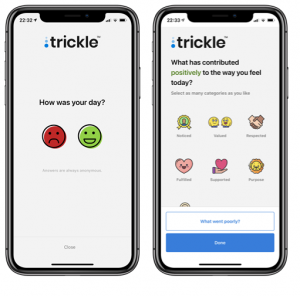Supporting doctors’ wellbeing during COVID-19 and beyond
COVID-19 has brought disruption, uncertainty and increased pressure on frontline workers – most notably doctors and nurses who are dealing with an influx of patients and a seemingly never-ending caseload. Researchers at Aberdeen, St. Andrews, Dundee, Glasgow, Edinburgh and NES wanted to understand how doctors were experiencing the transitions associated with COVID-19 and beyond, and what interventions would best support doctors’ wellbeing and resilience during the pandemic and towards future practice
Funded by the Chief Scientists’ Office in Scotland, this was a Scotland-wide rapid research project on doctors’ wellbeing. This type of research meant that the pace was fast, but effective – with the entirety of the project being only six months from start to finish. The research included interviews and longitudinal audio diaries from around 100 doctors across Scotland during the first wave of COVID-19.
Dr Anita Laidlaw and Dr Joanne Cecil, lecturers at St. Andrews, who each have an interest in health communication and wellbeing of medical students and doctors were involved in this project. Because of the fast pace of the research, all stages of the project were worked on in parallel with each other, which meant that scoping review, data collection, analysis, intervention development and evaluation were conducted simultaneously. Drs Laidlaw and Cecil noted that the fast pace of the research “allowed for the team to quickly identify what should be focused on, which allowed for a narrower research focus.”
After analysis of the interview and diary data, the team worked to develop interventions that would enhance access to formal and informal forms of psychological support. One of these interventions was “How Was Your Day?” – a new component of the employment engagement and wellbeing app called ‘Trickle’ which gives real-time data on the wellbeing of Scotland’s NHS workforce and allows health care staff to provide feedback to the organisation. The “How was Your Day” component of the app provides insight into factors that contribute to good days, such as days where people feel respected and connected to colleagues and takes a proactive approach to supporting and valuing staff. Since introducing this app into the NHS, poor hydration has been highlighted as a contributor to bad days.
This project, despite the fast pace of research, has yielded very important results. The findings clearly showed that the COVID-19 pandemic has magnified already existing challenges to doctors working practices. As Dr Laidlaw cited, “the project really allowed us to identify barriers in the workplace and helped to make it more acceptable for doctors to seek help when they need it.” The research identified that doctors were experiencing a lack of being valued and increased stigma around seeking psychological support – which was only made more prominent during COVID-19.
Although the project identified certain barriers to accessing support both formally and informally, it also revealed positive experiences including the importance of teamwork and collaboration within and across specialities. Dr Cecil noted that “although the results indicated there is work to be done to improve wellbeing of doctors within the NHS, it also revealed what was working which gives us a starting point to make improvements.”
With additional funding, the project hopes to continue research with the participants in 2021 (a year post initial COVID-19 lockdown) as a part of the follow-up – giving more information on “the beyond” aspect of the research.
